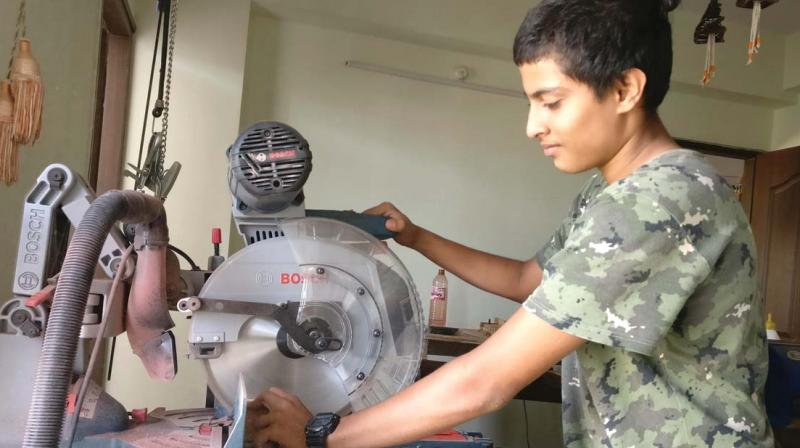HomeSKOOL where the heart is
A few radical parents are deliberating pulling their kids out of school and educating them at home.

While all his counterparts got busy with public exams, assignments and getting A grades, 15-year-old Vivek KN is only bothered about the wood work he does at home. He has been homeschooled since the age of 10. Vivek has a studio at home and makes wooden toys for young kids.
“He has a venture called Kingwood Carpentry where he makes toys, decorative items and utility furniture like shoe stands and so on. He sells them too. Mainstream education at schools was unable to cater to his needs. He is more of a kinaesthetic boy who needs more hands-on experience and so we decided mainstream curriculum will not suit him,’’ says Vivek’s mother Rashmi Nagesh Babu who is a facilitator at a Montessory School.
Many young parents in Bengaluru have stopped sending their kids to regular schools. They care less about grades and certificates and focus more on the holistic development of their child.
Supriya Narang, mother of four-and-a-half-year old Samarth says that school hours are too long and structured, leaving no room for creativity and interests of the child.
“At schools, kids are judged on their ability to memorise facts and write them down. But I don’t think that is learning. We do what we feel our child needs. We allow our child to direct his learning. His day begins with breakfast (made together) along with daily chores. Then we head out to the park or meet a friend for play date. Some days, we have football or yoga class. On some other days, we meet our friends in a co-op. A homeschooling co-op is a group of parents and children learning together. Each day is different but it encompasses at least three to four hours of outdoor play, because that is how children learn at this age,’’ she says.
Many parents believe that homeschooling gives a child freedom to explore extracurricular interests where they can truly focus on what they like to do, and excel in that.
Twenty-eight-year-old Gauthami Gopalakrishna, Co founder of Decode X and Why, speaks about how they facilitate hands on teaching and learning experiences for kids where they get to give life to theoretical concepts. “The benefit with this kind of education is that children are able to decode higher level concepts with ease and it allows them to harness their curiosity and channelise it to make wonders. This format of learning allows children to explore subjects like chemistry with things in their homes, or maths by going shopping etc. This allows them to think out-of -the-box, ’’ says Gauthami.
Divya BA, mother of three- year -old Sinchana also opted for homeschooling after she felt that mainstream education might damage the creativity and ability of kids. “I don’t want my daughter to learn alphabets and numbers when there is so much more in life to explore. Kindergarten did not exist some 50-60 years ago. I strongly believe that it is important for children to be with one parent at least in the early years, says Divya.
Sandhya Viswan, a freelance education consultant talks about the pros and cons of homeschooling. “While there is ample space for creativity and freedom for kids when they are homeschooled, there are also issues like difficulty in commuting and finding a mentor for them especially in cities like Bengaluru,’ says Sandhya.

